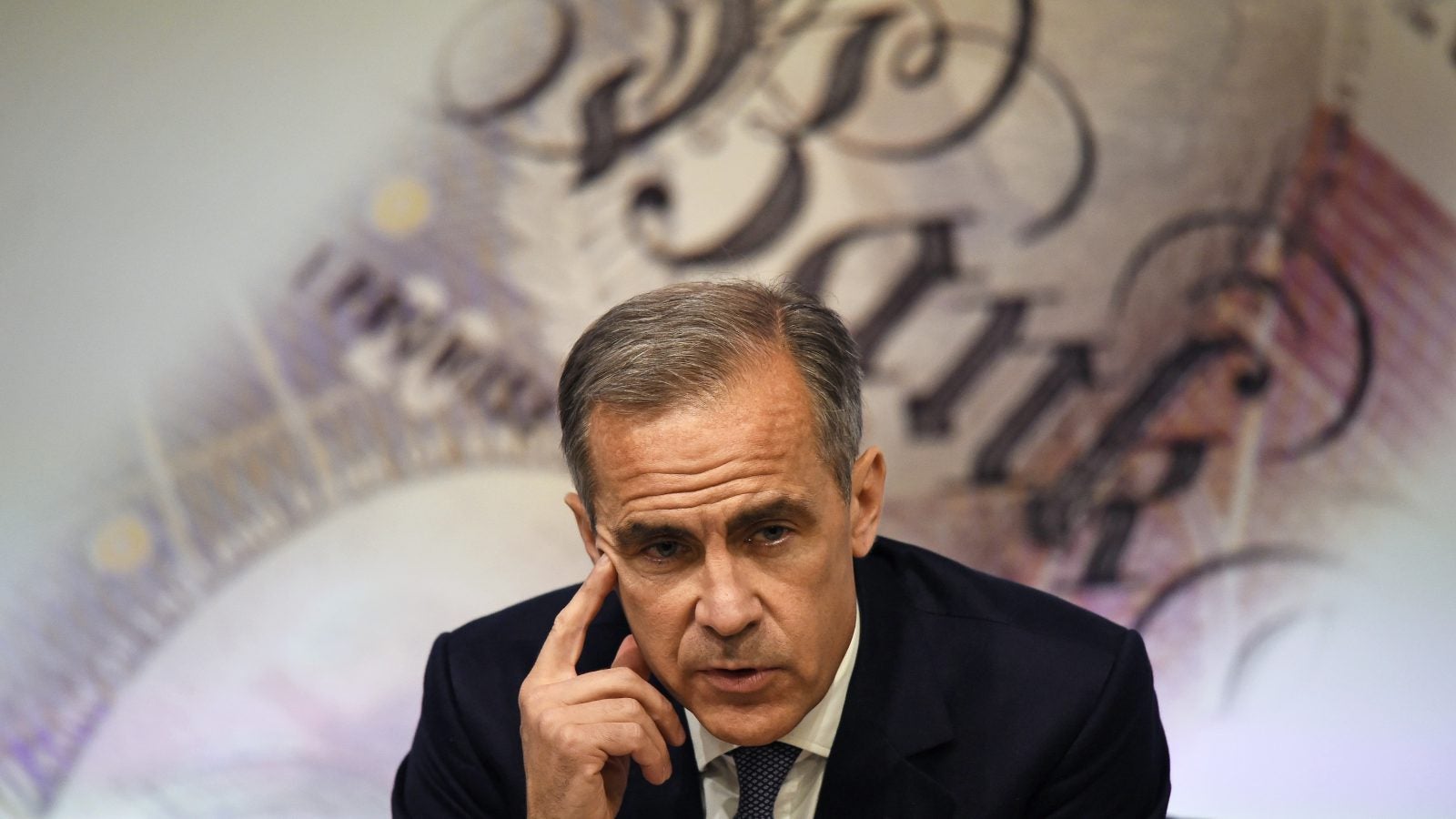Post-Brexit vote, the Bank of England has not immediately cut interest rates—but says it might in August
The Bank of England today (July 14) kept interest rates at the same low level they’ve been at for the last seven years, despite a widespread expectation that it was going to cut its benchmark rate in the wake of a June vote in the UK to leave the European Union.


The Bank of England today (July 14) kept interest rates at the same low level they’ve been at for the last seven years, despite a widespread expectation that it was going to cut its benchmark rate in the wake of a June vote in the UK to leave the European Union.
The benchmark rate will remain at the already-low level of 0.5%, which it has coasted along at since it was last cut back in March 2009 (from 1%). The decision to keep the rate unchanged, which was passed with an 8-to-1 vote of the bank’s monetary policy committee, surprised the markets, given that Mark Carney, the BoE governor, had made dire predictions about Brexit’s effect on the UK economy, and had indicated he was planning a cut.
But a statement from the bank indicated that a cut is likely coming in August.
“In the absence of a further worsening in the trade-off between supporting growth and returning inflation to target on a sustainable basis, most members of the Committee expect monetary policy to be loosened in August,” which analysts suggest would mean a lowering of the rate to 0.25%, the statement said.
The bank said for now it’s not expanding its £375 billion of stimulus, in the form of government bonds that it has bought and continues to hold. Early indications suggested the referendum result had dampened house prices, as well as consumer and business confidence, the bank said.
Sterling rose against the dollar immediately after the news of the unchanged rate.
Carney’s warnings before the referendum were bleak (paywall). He warned of job losses, banks and companies leaving the country, a plummet in the pound, and even a potential descent into recession. Some of those have happened.
The vote to leave the EU came as a surprise to many. Before it, the bank had been expected to raise rates. That would have been an indication that the economy, which has needed support and stimulus ever since the financial crisis tore out its underpinnings back in 2008, was finally getting back to normal.
A rate cut in August would be the latest of many indications that the British economy is slowing down. George Osborne, the chancellor of the exchequer who oversaw the economy, lost his job yesterday when Theresa May, the new prime minister, replaced him with Phillip Hammond.
Hammond said today that the referendum had had a “chilling effect” on the economy, but ruled out an emergency budget. He also said he would scale back austerity measures, which have been in place since 2008.